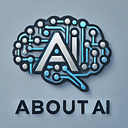Unsupervised Elicitation: Uncovering Hidden Abilities in Language Models
As language models grow more capable, an important question is: how much of their “intelligence” is accessible without costly supervision? Why? because if we could reliably uncover what a model already “knows” through unsupervised means, it could change how we develop, evaluate, and trust these systems.
In “Unsupervised Elicitation of Language Models” (Wen, Ankner, Somani et al, 2025) the authors propose a framework that leverages model introspection to discover implicit skills and knowledge without additional human labeling. By systematically probing the model with carefully designed prompts and response patterns, they identify abilities that are competitive with, and in some cases outperform, those revealed via supervised fine‑tuning.
Their method involves crafting sequences of unsupervised elicitation prompts tailored to invoke latent structures in the model. These are then analyzed to extract emergent behaviours such as reasoning patterns or factual recall which resemble those demonstrated by models trained with supervision. The authors argue that that the elicited behaviours rival supervised baselines on several benchmark tasks, suggesting that many model capabilities are “hidden” rather than absent. The conclusion emphasizes that unlocking such latent abilities could reduce dependence on expensive fine-tuning and labeled datasets, while revealing more about internal model structure.
To me, this paper is interesting because it highlights how much is already encoded in pre-trained language models, potentially surpassing expectations of what unsupervised probing can reveal. It pushes us to rethink the allocation of effort in model training, potentially shifting more toward intelligent elicitation than costly annotation. This also opens up new avenues for explainability and deeper model introspection. Moreover, the ideas resonate strongly with challenges in RAG systems where knowing whether a model’s response is grounded in retrieved knowledge or emerging from its pre-trained memory is crucial for trustworthiness and control. Techniques like unsupervised elicitation could offer a systematic way to disentangle these sources and helping identify which behaviors are intrinsic to the model and which require augmentation.
Note that the elicitation process still requires careful design of prompts and heuristics, which can introduce biases or miss certain latent capabilities. Additionally, the method’s success depends on the richness of the pre-trained model’s internal representations.
What would it mean to rank or audit language models based on unsupervised “expertise profiles”? Could this redefine how we compare and trust models across different applications?

